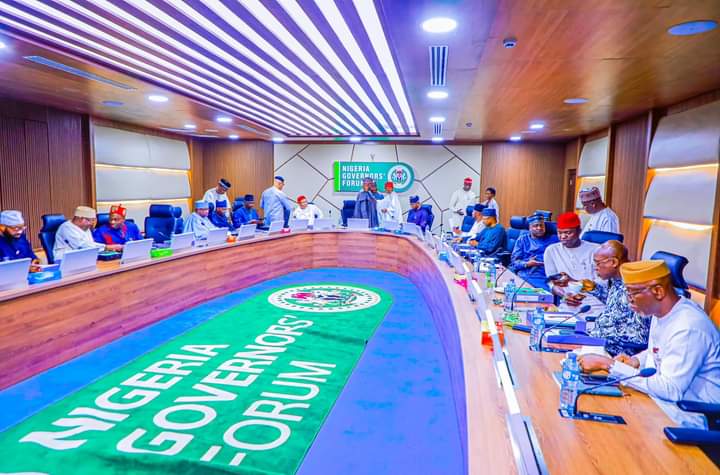State governments have rejected plans by the House of Representatives to remove immunity for the vice president, governors and their deputies from criminal prosecution while in office.
They said the move could ignite politically motivated lawsuits, distractions from governance, and instability in state administrations.
The immunity clause enshrined in Section 308 of the Nigerian Constitution protects the President, governors, and their deputies from legal proceedings while in office.
Oyo State Commissioner of Justice and Attorney General, Abiodun Aikomo, said removing immunity by the National Assembly would affect developmental projects in the states.
He told The PUNCH that removing immunity would distract the executive arm of government from its functions, adding that “the concern was that if these officials were held criminally responsible for actions taken while in office, they would be distracted from performing their duties.
“That’s why the constitution has given them immunity from prosecution.
“In law making, even when you go to court and the court is going to interpret the provision of any law, it looks at what is the mischief in society which the law was introduced to cure.
“So, if someone is in an executive office, instead of distracting that person from doing his work by taking him to court and prosecuting him, the law will say just concentrate on what you are doing, in four or eight years, the work will be over, and you can be asked to come and account for your deal.
“Laying that foundation, I honestly do not think immunity should be scrapped.”
His Ogun State counterpart, Oluwasina Ogungbade (SAN), said removing immunity would not enhance the fight against corrupt public officials, and warned that if the House pulls through with the bill, it would only encourage “a rash of politically motivated allegations of corruption and wrongdoings.”
He said, “I also hope that the removal of immunity for only those proposed will not lead to a rash of politically motivated allegations of corruption and wrongdoings, to achieve unjust and illegal removal from office of elected officials.”
Ogungbade wondered why the bill spared the president, saying removing immunity should affect the president too.
“I have also read reports about the proposed amendment. My first reaction is to question why the removal is proposed to be limited only to those mentioned. Why is the president not included?
“If immunity is to be removed, then it has to apply to all elected officials without exception.
“However, I have doubts that the proposed removal will have any meaningful impact on the fight against corruption,” he said.
The Ogun AG was, however, quick to add that it was the complete revamp of the criminal justice system, including the investigative techniques and procedures of the major crime agencies, that could help to give the corruption fight a bite and not the removal of the immunity clause.
“I am aware that at the moment, persons who once occupied those offices and have been out of office for years are either still under investigation or prosecution.
“Why is this so? The point is that the immunity clause is really not the problem.
“If we cannot investigate and prosecute people when they are out of office, what assurance is there that we will be able to do so while they are still in office, enjoying all the powers and influence that come with that office?
“My take is that we must simply have a complete revamp of the criminal justice system, including the investigative techniques and procedures of the major crime agencies,” he added.
One of the sponsors of the bill, Solomon Bob, said removing immunity would strengthen the fight against corruption and enhance accountability.
Another member of the House, Bob, representing Ahoada East/Abua/Odual Federal Constituency of Rivers State, in December 2024, defended the bill, saying the removal of the immunity clause for the concerned public officeholders would check corruption.
“With this bill, we want to see a less corrupt society, a less lawless, reckless society and a less undisciplined place.
“We must do away with this notion that we can go after these people when they leave office. What the hell is that?
“If people know that they can be pursued while in office, they’ll be more careful with their actions.
“It is counterintuitive to think that we have to wait until they finish their terms to take action against them,” he said.
Bob also argued that “If the vice president becomes president, even in an acting capacity, he can be entitled to the same immunity that the president has.
The bill proposes amendment to Section 308 of the 1999 Constitution, removing immunity for other top executive officeholders but retaining it for the President.
The House presided over by the Deputy Speaker, Benjamin Kalu, which passed the bill through a second reading at Wednesday plenary, is to be transmitted to the House Committee on Constitutional Review for further legislative action.









